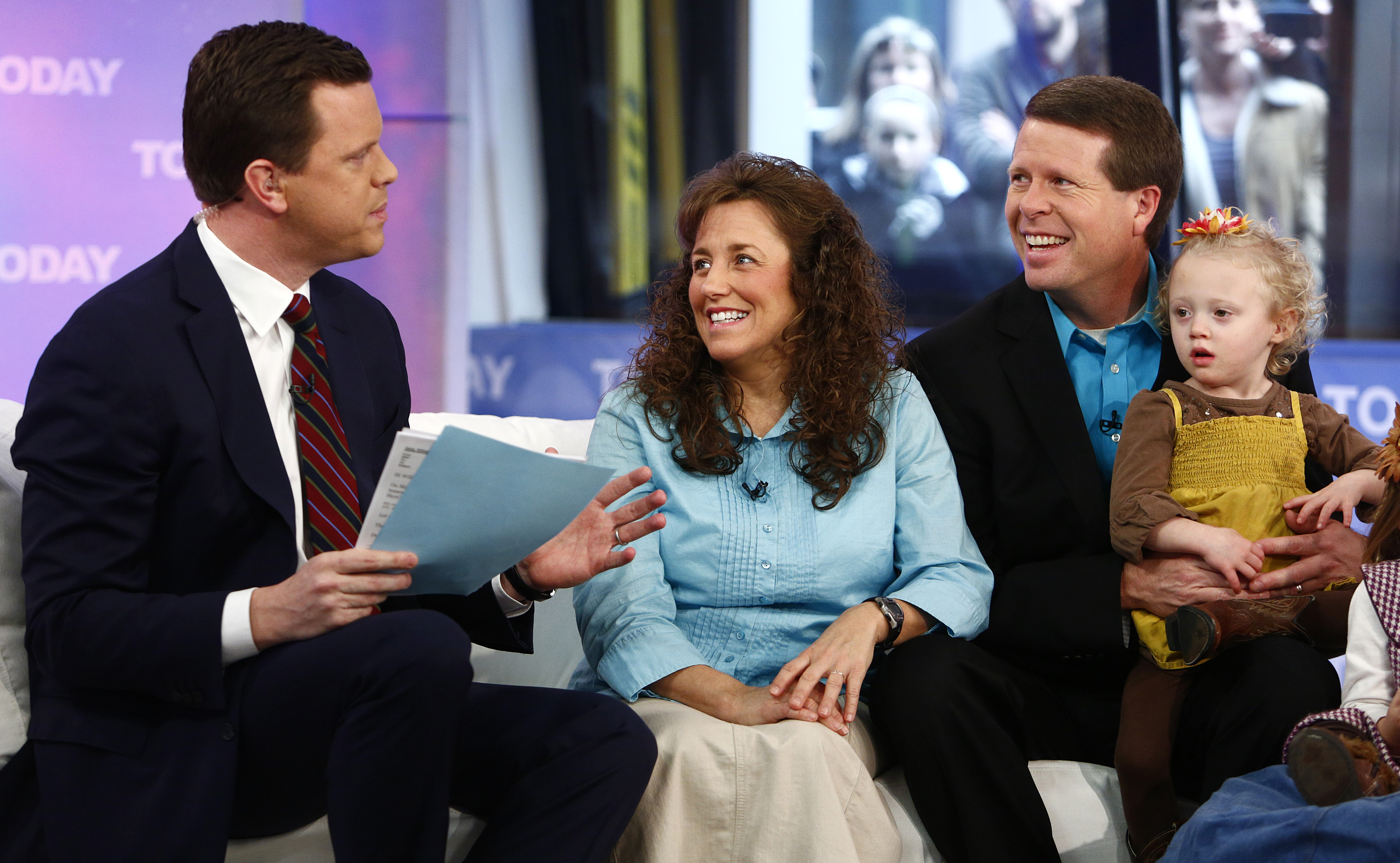Michelle Duggar of ‘Counting On’ Once Shared She May Have Experienced Postpartum Depression
Michelle Duggar is the mom of 19 kids. On her family’s TLC reality shows, 19 Kids and Counting and Counting On, she always seems calm and unflappable. But being a mom wasn’t always easy, and Michelle has confessed that she sometimes felt overwhelmed. She’s even said that she may have experienced postpartum depression after the birth of one of her children.
Michelle Duggar felt ‘clouds hanging over me’ after the birth of one of her kids

In a blog post from 2010, Michelle addressed whether she’d ever experienced postpartum depression. While it didn’t sound like she’d been officially diagnosed with the condition, she did share that she’d struggled after the birth of one of her kids.
“If I look back, probably with one of my babies,” she wrote in response to a question about whether she’d had PPD. “There was a time that I felt overwhelmed and tired — I felt like there was a dreariness with clouds hanging over me.”
Michelle went on to explain that when she was in the midst of the episode, she “couldn’t really explain what it was.” However, upon reflecting on the experience, “it probably could have been the postpartum depression hormonal issues, as well as being totally exhausted.”
How Michelle Duggar coped with her feelings
The mom of 19 didn’t say exactly when she had her experience with PPD, but it sounds like it was after the birth of one of her older children.
“I wasn’t used to not getting sleep at night, and not accustomed to having a crying baby when I’d like to lie down and take a nap,” she wrote. “It drains you physically and emotionally. Getting enough nutrition is a challenge as well. All of those factors can play a part.”
Michelle shared that she turned to practical solutions, such as listening to “happy” music and drinking tea, to battle her blues. She also relied on her faith.
“As a Christian, I know that when I was struggling in that way, I wanted to turn my heart in the right direction – not to focus on negative feelings or emotions — but really turn my heart toward God,” she wrote. “Of course, I tried to get sleep. But that didn’t always happen (laughs). You do what you can do. I would drink tea during the day to try to stay awake because I had to take care of my kids.”
Postpartum ‘baby blues’ are common for new moms
Michelle’s feelings of depression after the birth of one of her kids aren’t unusual. Many new moms experience “postpartum ‘baby blues’ after childbirth,” notes the Mayo Clinic. Symptoms may include mood swings, anxiety, and trouble sleeping. Usually, the symptoms pass within a couple of weeks of giving birth. But in some women, they may last longer or be more severe. Rarely, women may develop a condition called postpartum psychosis.
The Mayo Clinic urges anyone experiencing “baby blues” or symptoms of postpartum depression to talk to their doctor, especially if they last longer than two weeks, make it difficult to care for your baby, or include thoughts of harming yourself or your child.
How to get help: In the U.S. and Canada, text the Crisis Text Line at 741741 to reach a crisis counselor for support.
Check out Showbiz Cheat Sheet on Facebook!


